Mnogo je zlokobnih znakova koji pokazuju da trebate posjetiti gastroenterologa, a u ovom ćete postu saznati na koje simptome treba paziti. Gastroenterolog je medicinski stručnjak i liječnik koji je prošao rigoroznu i opsežnu obuku kako bi naučio kako upravljati, liječiti i izliječiti medicinske okolnosti povezane s gastrointestinalnim traktom. Ta područja uključuju crijeva, želudac, jetru, jednjak i rektum.
S takvim zvanjem za koje je potrebno više od 5 godina usavršavanja iz „Interne medicine“ i „Gastroenterologije“ (po završetku završene medicinske škole); Liječnici GI pružaju iznimnu njegu i liječenje i obično su uspješniji od liječnika kada je u pitanju dijagnoza i liječenje gastrointestinalnih komplikacija.
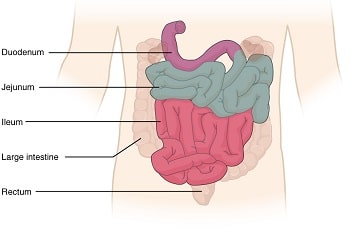
Sadržaj
Gastroenterolozi prolaze specijaliziranu obuku iz "endoskopije" što je praksa korištenja male i uske, a opet fleksibilne "cijevčice" s ugrađenom kamerom koja će se koristiti za navigaciju GI traktom tijekom zahvata, operacija ili dijagnostičkog testiranja kako bi se utvrdilo ima li ih prisutne su bolesti ili izrasline.
Kada su u pitanju gastrointestinalni medicinski problemi, traženje liječenja od gastroenterologa osigurat će vam najučinkovitiji mogući tretman jer ćete primati liječenje od medicinskog stručnjaka koji ima jedinstveno i dubinsko iskustvo obuke koje će vam značiti da ćete dobiti i visokokvalitetnu i "sveobuhvatnu" njegu za sve medicinske komplikacije povezane s GI s kojima se možete susresti.
Statistički je dokazano korištenjem studija da gastroenterolozi provode kolonoskopije i sveobuhvatnu skrb za gastrointestinalne probleme s većom stopom uspjeha u usporedbi s tretmanima koje pružaju drugi tipovi liječnika. To za vas znači da ćete dobiti tretman koji će točno otkriti prisutnost raka ili polipa, a istovremeno će rezultirati smanjenjem šanse za medicinske komplikacije koje proizlaze iz liječenja (bolesnici liječeni GI također mogu očekivati da će provesti manje vremena u bolnicu).
U ovom zapisu ćemo pokriti "15 glavnih znakova upozorenja da trebate posjetiti gastroenterologa" koji će vam pomoći da utvrdite imate li simptome medicinske komplikacije koja bi zahtijevala pažnju i liječenje od strane GI doktore.
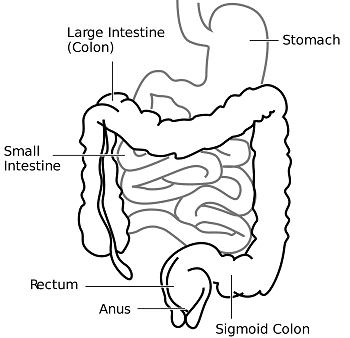
Kada prvi put počnete prepoznavati novonastale "bolove" ili bilo koje znakove/simptome koji potječu iz regije probavnog trakta, kao što su žgaravica, bol u trbuhu, proljev ili zatvor, možda se pitate trebate li posjetiti redovitog liječnika ili ne. internist ili gastroenterolog (probavni specijalist). Koga odlučite dijagnosticirati vaše stanje(a) na početku njihovog nastanka može se razlikovati ovisno o brojnim čimbenicima.
U nekim situacijama, donošenje ispravnog odabira posjeta liječniku ili gastroenterologu može biti nejasno, ali u nastavku ćemo vam pomoći s razumijevanjem simptoma kako biste pazili na gastrointestinalne probleme koje bi trebao dijagnosticirati i liječiti liječnik GI.
Ako tek sada prvi put osjećate simptome ili bolove u probavnom području, tada bi prvi korak mogao biti da potražite savjet svog primarnog liječnika, kao što je liječnik primarne zdravstvene zaštite ili internist.
Nadamo se da će to biti liječnik s kojim ste tijekom vremena izgradili odnos jer bi on/ona imao potpuni pristup vašoj medicinskoj povijesti i povijesti liječenja koja se može pregledati kako bi se utvrdilo što uzrokuje simptome koje doživljavate.
Nakon što se sastanete sa svojim liječnikom i pružite mu/joj svoje simptome, obavit će se fizički pregled kako bi se utvrdilo što treba provesti testove ili ne. Nakon što liječnik završi fizički pregled i ima dobru ideju o tome što vam uzrokuje iznenadne gastrointestinalne bolove, može utvrditi da liječenje treba pružiti stručnjak koji može pružiti afektivnu njegu za oporavak. U ovom slučaju, “specijalist” bi bio gastroenterolog.
Dr. Tarugu, iskusni i nagrađivani gastroenterolog iz Južne Floride preporučuje da osobe koje stalno imaju sporadične ili ponavljajuće napade u prethodno dijagnosticiranim stanjima (kao što su ulcerozni kolitis, Crohnova bolest ili IBS) trebaju odmah potražiti liječenje od gastroenterologa kako bi izbjegli daljnji rast ili komplikacije jak> zrelosti.
Tijekom liječenja od gastroenterologa, on/ona će obavijestiti vašeg liječnika o statusu vašeg stanja i napretka koji se postiže. Ova ažuriranja pomoći će vašem liječniku primarne zdravstvene zaštite da dobro razumije vaš status, što će pomoći liječniku da vam pruži odgovarajuću njegu na popisu kao podršku nakon oporavka. Nekoliko drugih gastrointestinalnih bolesti koje liječe GI liječnici su bolesti koje se nalaze unutar područja gušterače ili jetre.
Ako vaš liječnik primarne zdravstvene zaštite posumnja da se problemi pojavljuju u tim područjima, sigurno je pretpostaviti da ćete biti upućeni lokalnom gastroenterologu na detaljnu dijagnozu i stoga se može osmisliti plan liječenja.
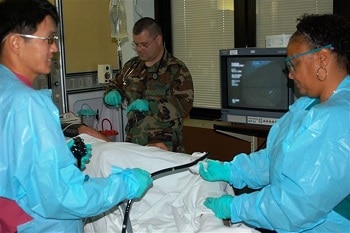
Svaki od njih su jedinstveni znakovi potencijalno ozbiljnih stanja koja se ne smiju odbaciti kao "nevažni" jer svaki od gore navedenih simptoma može rezultirati mnogo lošijim signalima komplikacija ako se ne dijagnosticira i ne liječi "rano".
U nastavku ćemo pokriti što bi svaki od ovih simptoma mogao značiti i zašto je važno što je prije moguće potražiti smjernice i liječenje GI liječnika.
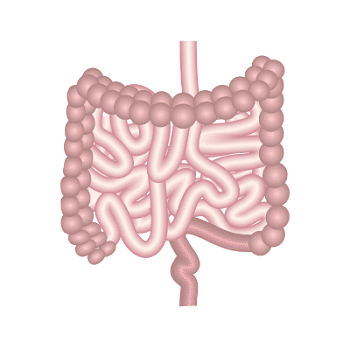
Procjenjuje se da ukupno 60 milijuna ljudi u SAD-u pati od žgaravice u prosjeku barem jednom mjesečno, a procjenjuje se da 15 milijuna ljudi pati od tog stanja “svakodnevno”. Doživljavanje simptoma kiselinske probavne smetnje (žgaravica) najtipičniji je kod trudnica i starijih osoba.
Postoji stanje koje se naziva "gastroezofagealni refluks" što je tjelesno stanje koje uzrokuje da želučana kiselina teče unatrag i vraća se u jednjak. Zbog toga će neki pojedinci, nažalost, imati iskustvo simptoma koji proizlaze iz toga kada se ovaj proces odvija (što može biti dnevno, tjedno ili mjesečno).
Jedan od prvih znakova posjeta gastroenterologu zbog žgaravice je iskustvo osjećaja vruće nelagode koja dolazi iz regije iza prsne kosti. Ovaj osjećaj ima tendenciju prelaska u područje grla i vrata, tako da nelagoda bilo koje vrste u ovom području treba biti znak upozorenja da trebate posjetiti gastroenterologa radi dijagnoze/liječenja.
Još jedan znak upozorenja refluksa kiseline je "kiseli" ili "gorak" okus u stražnjem dijelu vašeg grla jer je to okus želučane kiseline. Budući da simptomi vrućeg tlaka žgaravice mogu trajati i do nekoliko sati (i pogoršati se nakon jela), takva dosljedna agitacija u ovom području trebala bi vas potaknuti da odmah zatražite dijagnostičko testiranje od GI liječnika.
Ako osjetite takve simptome 2 ili više puta tjedno, ili osjetite gubitak težine, gubitak krvi ili zalijepljenost hrane, možda imate žgaravicu koja je vrlo ozbiljna. Ako se pojave takvi simptomi, možda imate stanje poznato kao "gastroezofagealna refluksna bolest (ili "GERB za injekciju").
Prije nego počnete razumjeti točne uzroke GERB-a ili gastroezofagealne refluksne bolesti, prvo morate razumjeti koji su uzroci žgaravice. Većina pojedinaca osjetit će uznemirenost žgaravice u slučaju da sluznica jednjaka dođe u kontakt sa želučanim tekućinama tijekom duljeg vremenskog razdoblja .
Ove želučane tekućine sastoje se od nekoliko različitih materijala uključujući enzime povezane s probavom i kiselinu. Kako želučana kiselina ostaje u kontaktu sa sluznicom jednjaka, može doći do ozljede jednjaka što rezultira neugodnim, pečenim i bolnim osjećajem.
Dok mišićni zalistak prema dnu jednjaka (poznat kao “donji sfinkter jednjaka” ili “LES”) drži kiselinu u želucu i dalje od jednjaka (kada pravilno funkcionira), to nije slučaj ako osoba ima ili "gastroezofagealna refluksna bolest" ili "GERB" jer "LES" ima tendenciju redovitog opuštanja što omogućuje refluks želučane kiseline natrag u jednjak.
Takav simptom treba liječiti što je prije moguće od strane GI liječnika kako bi se zaustavio razvoj daljnjih komplikacija.
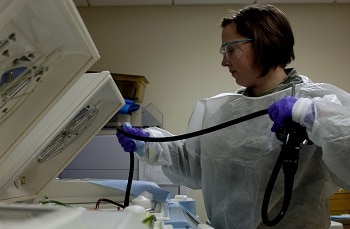
Prilikom posjete svom liječniku GI, na temelju dijagnostičkih rezultata izradit će se plan liječenja/oporavka.
Ako se samo-liječite više od dva puta tjedno zbog žgaravice, to je samo po sebi znak da se trebate liječiti kod gastroenterologa. Stanja koja iskusni GI ne liječi mogu potencijalno dovesti do ozbiljnijih komplikacija.
Imate li problema s gutanjem hrane? Imate poteškoća prilikom uzimanja tekućine? Osjećate li sporadične ili konstantne otekline u području grla? Ako je tako, to bi mogao biti znak upozorenja manjeg ili ozbiljnog stanja koje bi vas trebalo potaknuti da potražite gastroenterologa radi dijagnoze. "Bilo koja vrsta boli ili uznemirenosti uzrokovana pitkom vodom može biti znak upozorenja ozbiljnog gastrointestinalnog problema", izjavio je dr. Vikram Tarugu, iskusni, certificirani i nagrađivani gastroenterolog.
Drugi znakovi upozorenja koje treba imati na umu jesu li vaše poteškoće s gutanjem popraćene štucanjem, promuklošću u grlu, čestim kašljem ili osjećajem sitosti nakon što pojedete vrlo malenu porciju hrane ili ne. Ako se pojavi bilo koji od ovih potencijalno opasnih znakova upozorenja, vjerojatno bi uzrok mogao biti rak jednjaka. Stoga, ako osjetite bilo koji od ovih znakova upozorenja, ne oklijevajte potražite savjet od svog primarnog liječnika ili gastroenterologa ako već imate vezu s njim. Osjećate neobičan miris od plina koji prolazi? Ovo bi moglo biti znak upozorenja zaraznih parazitaa
Iznenađujuće je da u prosjeku tipična osoba dnevno izbaci gotovo 2 litre plina, osim ako se ne događaju abnormalnosti u probavnom traktu. Jedan znak upozorenja na koji treba obratiti posebnu pozornost je ako osjetite bol ili nelagodu u području trbuha tijekom puštanja plinova ili pražnjenja crijeva.
Nadalje, ako su pražnjenje crijeva i izlučivanje plinova počeli imati neuobičajeno užasan miris onda bi to mogao biti znak da imate giardiju koja je parazit koji iritira i inficira crijeva. S obzirom da se giardija može pogoršati ako se ne liječi, znak upozorenja kao što je ovaj ne treba zanemariti.
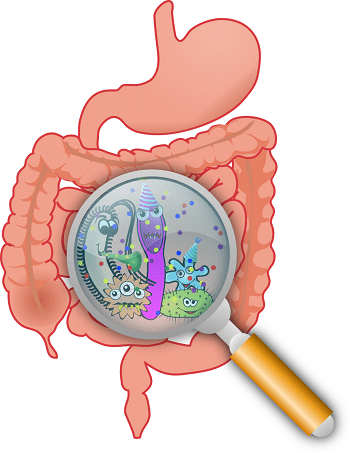
Svi smo u nekom trenutku u životu iskusili nadutost, ali ako ona postane trajna, postoji mogućnost da postoji temeljni uzrok. Ako ste primijetili da vam je teško navući kratke hlače kada ste ih prije samo nekoliko dana nosili bez problema, onda možda niste krivi za to što ste "preskočili odlazak u teretanu".
Nadutost se jednostavno javlja kada je naš unos hrane/zraka previše i naše tijelo se toga ne riješi pravilno. Međutim, ako nadutost naglo počne bez ikakvog razloga (niste jeli neko vrijeme) i javlja se uz prisutnost boli ili krvi u stolici, to bi mogao biti znak upozorenja da je vrijeme da posjetite gastroenterologa.
Takav znak može značiti da je započeo razvoj celijakije, GERB-a (gastroezofagealne refluksne bolesti), IBS-a (sindrom iritabilnog crijeva), zatvora ili žučnih kamenaca.
U svakom slučaju kada prepoznate krv u stolici ili abnormalne oštre bolove u području trbuha prilikom otpuštanja plinova ili pražnjenja crijeva, svakako trebate biti dijagnosticirani i liječiti od strane GI liječnika.
Jedan znak upozorenja koji bi trebao dijagnosticirati GI liječnik je nagli, neočekivani i neobjašnjivi gubitak težine. Iako se nagli gubitak težine može pripisati raznim drugim zdravstvenim problemima, obično je najbolje mjesto za traženje korijena problema probavni sustav.
Dr. Tarugu, certificirani gastroenterolog u južnoj Floridi s više od 2100 uspješno dovršenih procedura izjavio je da je "prvi problemi koje želite izolirati kao uzrok naglog gubitka težine rak želuca, gušterače ili debelog crijeva".
Stoga, ako doživite nagli gubitak težine, posavjetujte se s gastroenterologom kako biste bili sigurni da nije kancerogena ili Chronova/celijakija (što bi umanjilo sposobnost vašeg tijela da apsorbira vitalne hranjive tvari).
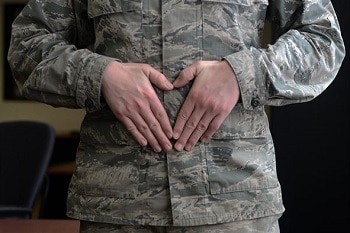
Tijekom pražnjenja crijeva vjerojatno bi bilo malo zabrinjavajuće primijetiti neke crvenkaste tragove na toalet papiru jer svi znamo da krvarenje iz takvog područja nije normalno. Krvarenje iz područja rektuma može biti znak potencijalno opasnog stanja i treba ga "odmah" dijagnosticirati i liječiti.
Iako je moguće da je krvarenje uzrokovano hemoroidima, ako nije, potrebno je potražiti gastroenterologa, posebno ako se krvarenje ponavlja i ako su osobe starije od 40 godina.
Probavne smetnje (medicinski se također nazivaju "dispepsijom") izraz je koji opisuje stanje koje uključuje više različitih simptoma koji se javljaju tijekom jela. Neki od ovih simptoma mogu uključivati osjećaj da ste "nabijeni" nakon što ste završili s obrokom uz "bol" ili "osjećaj peckanja" u gornjem dijelu trbuha.
Probavne smetnje prilično su uobičajeno stanje među odraslim osobama srednje i starije dobi koje se javljaju na mjesečnoj, tjednoj ili čak dnevnoj bazi.
Ako osjetite bilo koji od sljedećih simptoma, potrebno je potražiti savjet i liječenje od GI liječnika za prevenciju komplikacija:
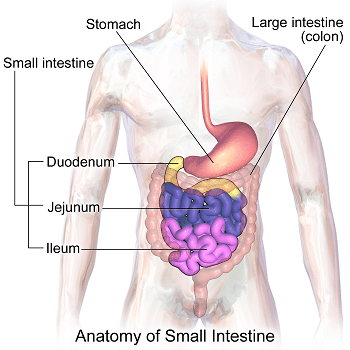
When visiting your GI doctor a treatment/recovery plan will be formulated based upon the diagnostic results.
Possible treatment suggestions may include:
Keep in mind that indigestion and heartburn are two different conditions with each having their own unique symptoms.
However, if you’re experiencing the symptoms of both then it’s possible that you’re suffering from both of the two. Regardless, whether the agitation is minor or severe it’s important that you take such a warning signal seriously and seek treatment from a GI doctor that will help to diagnose and remedy the condition(s).
Nausea is quite an unpleasant experience and can use intense feeling of dizziness, minor to severe discomfort and paint in the abdominal area. On the other hand, often times accompanies by nausea, vomiting is the occurrence of a contraction from the stomach that during times of nausea can help one feel a bit better as the content of stomach is during vomiting is the process in which it’s propelled up thru the esophagus.
Intense and consistent vomiting could possibly be a warning sign of a Gastroenteritis which can be treated by a gastroenterologist. Gastroenteritis is known to be a viral infection that causes inflammation within the digestive tract and can be treated thru the use of medication(s) which will be recommended by the gastroenterologist that you choose to visit.
Are you experiencing a dullish pain in the stomach, weight loss, the undesired to intake food due to pain or nausea/vomiting? If so, this could be a sign of a minor yet serious matter. Such warning signs could possibly mean that you’re suffering from a Peptic Ulcer which can be diagnosed by a gastroenterologist thru the use of an upper GI series or an endoscopy.
If you’re experiencing upper abdominal pains (one of the biggest signs of a stomach ulcer ) be sure that you seek the diagnosis/treatment from a GI doctor so you can have it treated while preventing the possibly of further complications arising from the condition.
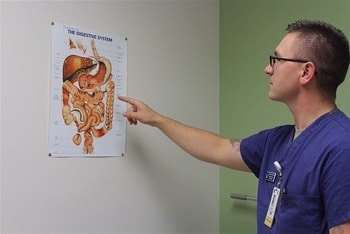
Individuals that may have GI disorders can suffer from warnings signs that are both painless and pain-induced. Such symptoms can be diarrhea/constipation (in some cases, irritable bowel syndrome). Such signs, whether they’re painful or not, could possibly be a sign of a condition other then IBS known as “centrally mediated abdominal pain syndrome” (or “CAPS” for short) which used to be medically referred to as “functional abdominal pain syndrome” (FAPS).
CAPS is a gastrointestinal disorder and is typically caused by a change in the nerve impulse sensitivity and will cause intense and frequent pain in the abdominal section which for some individuals will be quite severe.
In some cases, pain can be so intense and persistent that it’ll affect you in the similar way as the pain from a tooth ache as it can consume your focus/life since it has a tendency to “not go away” for extended periods of time. If such warning signs are present, seek counsel from a gastroenterologist where an antidepressant may be prescribed to not only reduce anxiety caused by the pain but to help alleviate the pain all together.
If you’re experiencing the feelings of belching, bloating or flatulence (build-up of gas in the alimentary canal), these could be warning signs that you you could possibly be suffering from a number of different conditions including allergies to certain foods, lactase deficiency, peptic ulcer disease or a H. Pylori Infection. Each of these we’ll cover below more in-depth so you can determine the possible cause(s) of your symptom(s).
Food Allergies – While not typical, the most severe allergic reaction that one can inherit from the ingestion of food is known as “anaphylaxis” which could possibly be life-threatening. Studies have shown that 90% of all allergies related to foods are caused from the ingestion of soy, wheat, shellfish, tree nuts, fish, peanuts, milk and eggs. If pain tends to arise after consuming such food items then this may be a signal that you need to seek the treatment of a gastroenterologist.
Lactase Deficiency – While lactase deficiency is pretty common with an estimated 3 million cases per year alone within the US, it’s an issue that’s brought upon individuals whose body has difficulty with digesting the sugar contents within dairy products. These issues arise in the digestive tract and can be treated by a GI doctor thru the use of recommended off-the-shelf medication(s) or by a prescribed medication (depending on the severity of your condition.
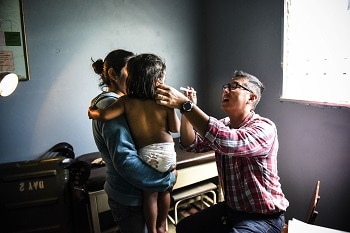
Individuals suffering from “Lactase Deficiency” can expect such warning signs to arise within 30 minutes to 2 hours from the consumption of milk or other food items containing dairy.
While symptoms aren’t always noticeable there are some warning signs that if arise should prompt you to see a gastroenterologist.
If you experience persistent and severe abdominal pain, have difficulty with swallowing or have bloody/black vomit that has the appearance of coffee grounds then seek diagnosis from a GI doctor for treatment as these are all warning signs that need attention before complications arise.
If you experience a yellowing of the eyes/skin then it’s very well possible that this is the warning sign that Jaundice is occurring. Jaundice is a condition in which there’s an excessive amount of bilirubin in the blood which is known, medically, as hyperbilirubinemia.
Bilirubin is a “yellow pigment” substance that affects the color pigmentation in the white of your eyes and your skin tone.
If you’re experiencing such signs of this condition schedule an appointment to see a GI doctor as quickly as possible as if not, further complications could develop which could lead to:
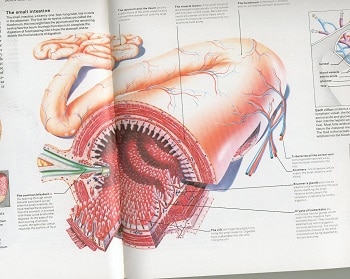
One warning signing of a possibly serious complication that should be diagnosed immediately is pain experienced in the abdominal section with the occurring pain spreading/radiating to your back. Such a feeling is a strong indicator and warning sign of “gallstone pancreatitis ”.
Gallstones are a pretty common cause of pancreatitis and this is caused by gallstones that develop in the gallbladder to block the bile duct which puts a stop to the pancreatic enzymes from being able to travel to your small intestine (which forces them to return to the pancreas).
During this process, these pancreatic enzymes will agitate the pancreas cells which will cause inflammation which can cause a great deal of pain that will radiate from the abdomen to the back. In some cases, this feeling of pain will also be accompanied by a tingling, prickly sensation. If such warning signs arise, seek attention from a physician or preferably a gastroenterologist who will help to diagnose the issue so proper treatment can be prepared/prescribed.
In the event that the gastroenterologist determines that your pancreatitis us due to the gallstones then an ECRP (Endoscopic Retrograde Cholangiopancreatography) will be performed which is a procedure conducted by the GI doctor to remove the stones.
For heavier/obese women it’s important to take cautious note of any pain that stems from the upper right-hand side of the abdominal sections as such a pain could be the indicator of “gallstone pancreatitis” (a prominent condition for heavier-set women). What’s causing such pain is the process of the gallstones blocking the bile duct which causes a chain reaction as this will stop any/all pancreatic enzymes from traveling to the small intestine providing the enzymes with no choice but to return to the pancreas. If the gallstones travel from the gallbladder to the common bile duct, gallstone pancreatitis can develop which is a condition that can continue to worsen and mature in pain while also leading to further complications if not treated.
If you’re medically considered to be “obese” and have had such pain on a regular or consistent basis, consult a GI doctor as treatment in the form of medication and surgeries are available (depending on the severity of the condition). Only making 1-2 bowel movements per week? Difficulty with going? Pain during defecating?
There are a few signs to look out for and notate when looking for signs of possible gastrointestinal complications. A few of these signs include difficulties with making bowel movements, only making 1-2 bowel movements per week or if you experience pain during defecating. Constipation is considered to be present whenever an individual is making only 1-2 bowel movements per week so if this persists this alone could be a warning sign of “anal fissure”. With an estimated 200,000 cases per year within the US alone, anal fissure is a condition that refers to the tearing in the lining of the anus which can cause an immense amount of pain during all three scenarios we referred above (making bowel movements and pain during throwing-up).
Anal fissures develop throughout the specialized tissues that line both the anus and anal canal and this is called the “anoderm”. The reason this can be (and more than likely “will be”) so painful is because of the over-abundance of nerves located within the anal canal. Diagnosis and treatment from a gastroenterologist is recommended. Typically, diagnosis of this condition can be determined by the physical inspection of area with either medication or surgery being recommended to treat (depending on the severity of the anal fissure).
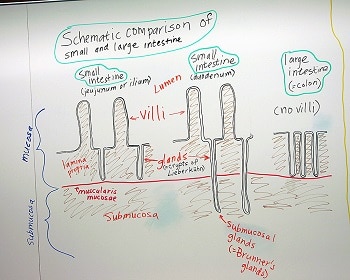
If you’re experiencing symptoms of a condition that includes intense and regular fevers, nausea/vomiting and diarrhea then notate these warning signs to show a gastroenterologist as these are signs of a possibly serious condition known as “bacterial gastroenteritis” which will need to be treated to prevent complications that could arise.
Bacterial gastroenteritis is a condition that develops and occurs whenever bacteria infiltrates your gut can and initiates an infection. If this occurs, inflammation will develop both in your stomach and intestines which will cause discomfort to say the least. Typical symptoms of “bacterial gastroenteritis” includes severe, extreme and persistent cramps in the abdominal area in addition to diarrhea/
While viruses are responsible for the majority of gastrointestinal infections bacterial infections are nearly just as common. A majority of people refer to bacteria-initiated infections as “food poisoning”.
There are a few different causes of “bacterial gastroenteritis” which can be poor hygiene habits, coming in close contact with pets or animals or from consuming foods/fluids that are contaminated with bacteria (even air-borne bacteria). If such warning signs arise, seek medical attention from a physician or preferably a gastroenterologist so the issue(s) can be properly treated to above any further development of bacterial growth.
First and foremost, any sign(s) of rectal bleeding is “not normal” and should never, in any scenario, be dismissed as a minor or non-severe matter as it’s a serious occurrence that requires the attention and treatment from a gastroenterologist.
One of the most prominent signs and symptoms of “irritable bowel syndrome” (IBS) is rectal bleeding and the presence of blood in the stool. In some circumstances, a warning sign is not making a bowel movement at all or only 1-2 times per week.
Blood expressed from the body caused IBD will appear to be “bright red” while if blood is originating from the upper area of the digestive tract the blood will be darker (dark/black stools). If such a sign has arisen be sure that you notate the darkness of the blood so you can provide this detail to a gastroenterologist who will use this information as a part of the diagnosis and treatment(s). In any case, if bleeding from the rectum is “severe” or if you’re throwing-up blood than this is a sign of a severe condition occurring which needs medical attention “immediately”.
Furthermore, such signs could also be a warning sign that you’re suffering from either “Crohn’s disease” or “ulcerative colitis” which are also conditions that you’ll want to have inspected by a GI doctor. Chron’s disease is a condition affecting 200,000 individuals per year and is a chronic, inflammatory irritable bowel disease that runs alone the digestive tract lining.
Ulcerative colitis is another chronic disease that inflames the bowel area which results in the digestive tract becoming inflamed. If any of the warning signs above are occurring, seek medical attention. You don’t want to take the chance of such conditions maturing in growth/size as not only could further complications arise but you may have to undergo additional treatments which otherwise could’ve been avoided had you have the condition(s) treated early on.
Experience vague or minor abdominal pain with a change in bowel movements last for 3+ months? Any changes in your normal bowel movement habits that are lasting for 3+ months is a sign that your body is changing, or, is changing due to an irregular occurrence/condition that should be looked at by a GI doctor; especially when you’re experiencing changes in bowel movement that are lasting for an extended period of time.
Irritable Bowel Syndrome (IBS) is a condition that can spark a significant amount of pain to its victims and will initiate a discomforting agitation feeling in the abdominal area. There are some very common symptoms of having IBS which include constipation, gas and diarrhea (in addition to a pain-induced belly). Having your IBS diagnosed for the severity will help you to have a planned pain-management regiment that will be created for you by the gastroenterologist.
When your stomach is experiencing pain it’s caused from the constipation or the diarrhea although is the painful feeling(s) diminish upon making a bowel movements then more than likely, your symptom(s) are an indicator of your pain being tied to a condition other than IBS (consult a GI doctor for diagnosis). This pain is initiated by contractions which can and will cause intolerable pain that will consume your life, make it difficult to rest and will make it difficult to focus on aspects of life (work for example).
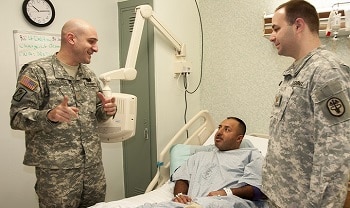
When it comes to your health it’s never a smart idea to over-look symptoms of possible health-related complications and rectal pain, bleeding from the rectum or the presence of blood in your stool are warning signs of a possibly serious complication. If you’re experiencing any of these signs, there’s a possibility that you body is suffering from one or more conditions that include it hemorrhoids, anal fissure, or anorectal cancer (although this is rare).
Hemorrhoids is a condition that should be treated by a GI doctor as Hemorrhoids is a medical condition that means the veins in the rectum and anus have become “swollen” which can cause the veins to bulge which will then result in severe agitation especially during bowel movements. Swollen hemorrhoids may be referred to by your gastroenterologist as “piles” as this is a commonly used medical term for this particular condition.
Hemorrhoids , depending on the severity of you case(if it’s determined by the GI doctor that you in-fact have it), you may undergo an operational procedure where the gastroenterologist will make use of specially designed medical equipment (not that intrusive) to “shrink” and “remove” the hemorrhoids which could actually be done on-site at the GI doctor’s office. Another treatment option is the GI doctor administering an injection in to the hemorrhoid with a specially formulated solution that will result in scarring the hemorrhoid to close it off.
Anal fissure is another condition that could be occurring if bleeding from the rectum is prevalent as this condition is the occurrence of “tearing” in the anus lining which will cause blood to originate out of the rectum which can be noticeable by looking at the stool (is blood noticeable?).
Finally, bleeding from the rectum can “possibly” be a sign of “anorectal cancer ” although this is quite uncommon and not the typical cause of bleeding from the rectal region. “Anorectal cancer” is a malignant infested disease that forms within the tissues and glands of the anus. If you’re suffering with HPV (human papillomaviurs) will increase the chances of “rectum cancer development” so it’s vitally important that you seek diagnosis is warning signs such as rectal bleeding occur.
For elderly/older women, experiencing a bulge or in the rectal area (comparable to a stomach bulge) is a serious sign of either “rectal prolapse” or “vaginal prolapse”; serious yet treatable conditions that can be cured by a gastroenterologist thru the practice of medication(s) or procedural operations.
In the United States it’s estimated that 10% of all elderly women suffer from rectal prolapse with signs ranging from rectal bleeding to the feeling of a “bulge” in the rectal region (noticeable to the touch). Rectal prolapse, specifically, is a condition in which the parts of the large intestine will protrude out of the anus and will cause quite a bit of discomfort, pain, difficulty with making a bowel movement and rectal bleeding.
If such signs occer, don’t procrasitance on receiving treatment. Consult with a GI doctors so treatment preparation(s) can be facilitated.
Vaginal prolapse is another condition that rectal bleeding can be a warning sign of. Vaginal prolapse is a serious condition where the bladder, rectum, urethra, small bowel or uterus will begin to fall out place.
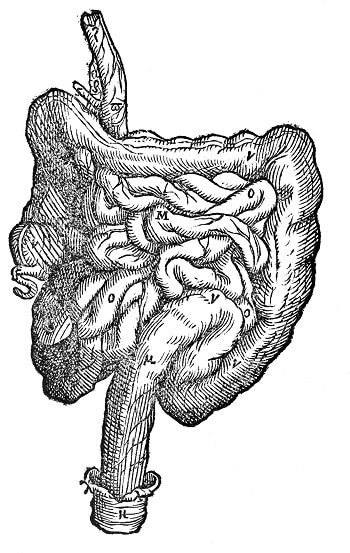
If any of these warning signs occur, it’s time to visit a gastroenterologist so you can receive an accurate diagnosis and treatment.
When it comes to your overall health, maintaining your normal body functions and avoiding complications a gastroenterologist can is a great go-to medical professional as you’ll be able to take advantage of the specialized training that the GI doctors has received so you can alleviate yourself of medical complications.
If any of this signs on this list has occurred, don’t hesitate to seek the intervention of a GI doctor. It’s paramount to ensuring the longevity of your health and will provide you with the peace-of-mind knowing that your symptoms are being affectively diagnosed and of course, treated.
We hope you found this guide helpful. Your gastrointestinal health is important to us and it’s our sincere mission to provide useful medical advice and suggestions.
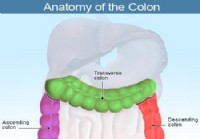 Krv u stolici (rektalno krvarenje, hematohezija)
Krv u stolici (rektalno krvarenje, hematohezija)
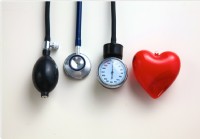 Vodi li hipertenzija uvijek do ozbiljnog COVID-19?
Vodi li hipertenzija uvijek do ozbiljnog COVID-19?
 Kako očistiti kuću probioticima
Kako očistiti kuću probioticima
 Ublažavanje žgaravice – Ugasite vatru
Ublažavanje žgaravice – Ugasite vatru
 Ozljede abdomena kod djece možda ne opravdavaju CT skeniranje
Ozljede abdomena kod djece možda ne opravdavaju CT skeniranje
 Dugotrajna prehrana može utjecati na upalne učinke crijevnog mikrobioma više nego samo određena hrana
Dugotrajna prehrana može utjecati na upalne učinke crijevnog mikrobioma više nego samo određena hrana
 Prehrana i osjetljivost na pšenicu bez celijakije
Nema sumnje da su gluten, pšenica i ugljikohidrati u cjelini dobili lošu reputaciju u medijima. Za osobe s celijakijom, medicinski je neophodno izbjegavati gluten. Međutim, mnogi pojedinci koji izbjeg
Prehrana i osjetljivost na pšenicu bez celijakije
Nema sumnje da su gluten, pšenica i ugljikohidrati u cjelini dobili lošu reputaciju u medijima. Za osobe s celijakijom, medicinski je neophodno izbjegavati gluten. Međutim, mnogi pojedinci koji izbjeg
 Infliximab može ometati učinkovitost nekih cjepiva protiv COVID-19
Budući da su mnoge zemlje teško pogođene ponovljenim valovima teške infekcije koronavirusom 2 (SARS-CoV-2) s akutnim respiratornim sindromom, s povezanim visokim stopama simptomatske koronavirusne bol
Infliximab može ometati učinkovitost nekih cjepiva protiv COVID-19
Budući da su mnoge zemlje teško pogođene ponovljenim valovima teške infekcije koronavirusom 2 (SARS-CoV-2) s akutnim respiratornim sindromom, s povezanim visokim stopama simptomatske koronavirusne bol
 Kul besplatne stvari – zato što smo bili zaključani u podrumu
Moj djed je imao čarobne moći dok sam odrastao. On je majstor za obradu drveta. A kad sam ja bila mala, ujutro je pio kavu i spuštao se u svoju radionicu u podrumu. Ponekad se činilo da je on dolje
Kul besplatne stvari – zato što smo bili zaključani u podrumu
Moj djed je imao čarobne moći dok sam odrastao. On je majstor za obradu drveta. A kad sam ja bila mala, ujutro je pio kavu i spuštao se u svoju radionicu u podrumu. Ponekad se činilo da je on dolje